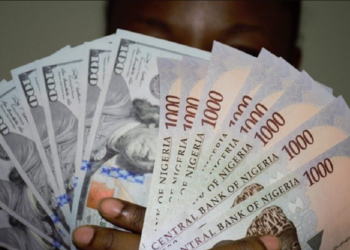Nigeria’s food import bill has jumped by 45 per cent to $2.71bn (N1.12tn) in 12 months, the Central Bank of Nigeria data have shown.
The CBN report on sectoral utilisation of foreign exchange, available on the central bank website, showed that the Federal Government spent $2.71bn on food imports from January to December last year.
In 2020, the Federal Government spent $1.87bn on food imports, showing an increase of 44.92 per cent or $840m in one year.
According to the CBN, in 2020, the government spent $164.89m, $146.21m, and $158.91m in January, February, and March, respectively, while $103.62m, $128.97m, and $137.58m were spent in April, May, and June, respectively.
The report revealed that $80.73m, $122.51m, and $121.13m were spent in July, August, and September, respectively.
It further showed that $198.43m, $204.76m, and $305.88m were spent in October, November, and December, respectively.
According to the CBN, in 2021, the government spent $163.60m, $197.73m, and $171.05m in January, February, and March, respectively, while $156.30m, $135.72m, and $213.58m were spent in April, May, and June, respectively.
The report revealed that $184.69m, $188.88m, and $271.59m were spent in July, August, and September, respectively.
It further showed that $309.39m, $345.21m, and $375.49m were spent in October, November, and December, respectively.
This increase occurred despite the CBN governor’s claim that the country could pronounce enough to feed its citizen.
The CBN governor, Godwin Emefiele, had made this claim during a recent Bankers’ Committee retreat in Lagos.
He said, “We believe that Nigeria can feed itself; Nigeria can produce what to eat. Everything needs to be done for us to move away from a situation where everything is imported.
“We need to get to a stage where we bring our manufacturing industries back to life again. For us to say that there is sustainable, inclusive growth in the country, we, as banks, working with the government must do everything possible to diversify the Nigerian economy.”





















